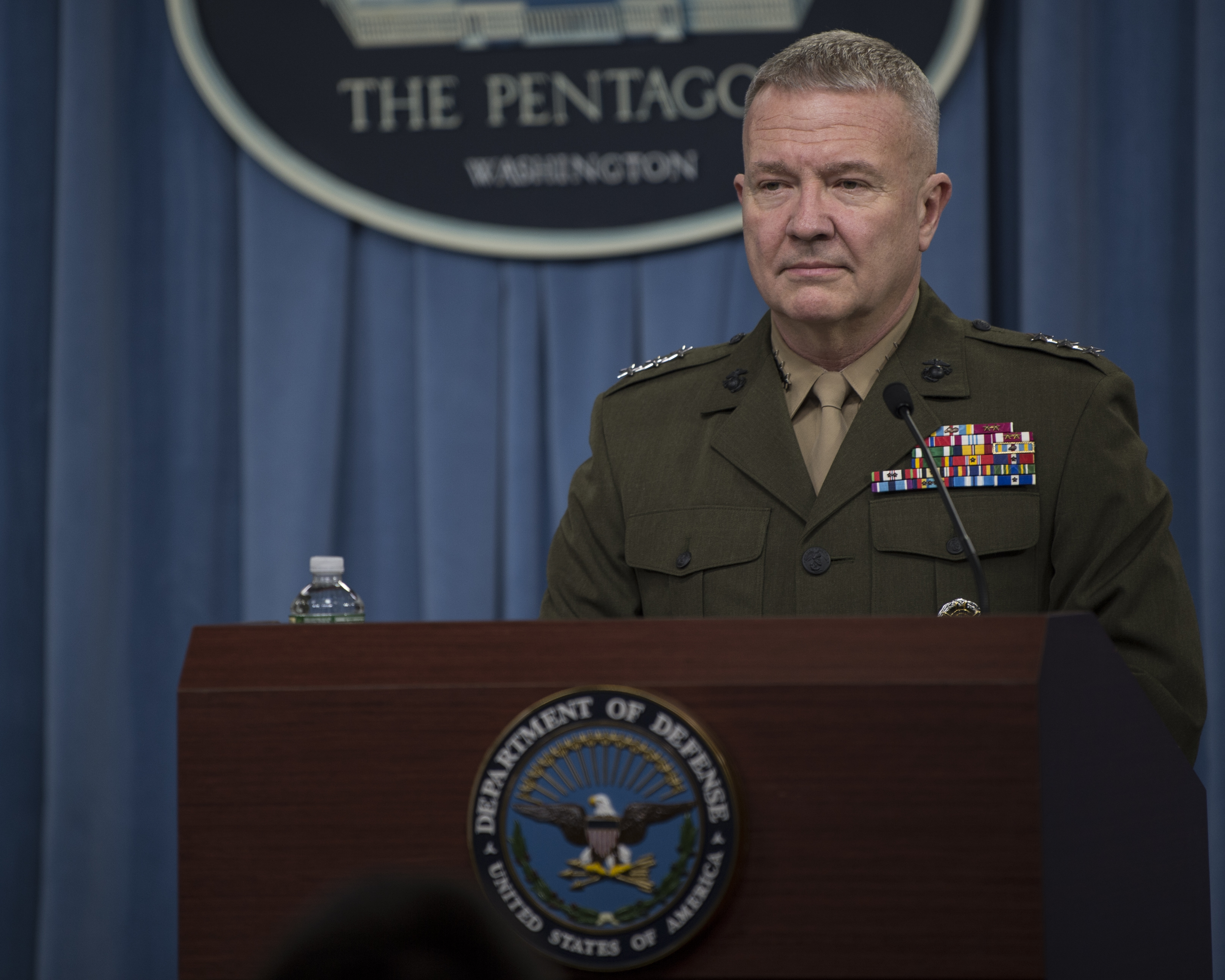
Lt. Gen. Kenneth McKenzie, the Joint Staff director, briefs the press at the Pentagon, March 15, 2018. DOD photo by Navy Mass Communication Specialist 1st Class Kathryn E. Holm.
The Defense Department Thursday pushed back against the notion that recent US military aircraft crashes represent a trend or military crisis.
Marine Corps Lt. Gen. Kenneth McKenzie, Joint Staff director, made the comments during a press briefing the same day the US military cancelled an exercise in Djibouti following two incidents there.
Air Force Thunderbirds pilot Maj. Stephen Del Bagno was killed Wednesday when his F-16 crashed in Nevada. Meanwhile, in two Marine Corps incidents in Djibouti on April 3, an AV-8B Harrier assigned to the 26th Marine Expeditionary Unit crashed at Djibouti Ambouli International Airport and a CH-53 Super Stallion assigned to the 26th Marine Expeditionary Unit was damaged while landing at Arta Beach. The Harrier pilot ejected and was “evaluated and released” from a medical facility at Camp Lemonnier, which is attached to the airport. The helicopter pilots were not injured, according to the Navy. Last month, an Air Force Pave Hawk helicopter also crashed in Iraq, killing all seven airmen on board.
McKenzie told reporters he could not say the recent incidents represented a wave or some sort of crisis.
“I’d say mishaps happen in military aviation any time you’re flying complicated machines in situations where you’ve got less than total visibility and doing things that are difficult to do,” he said. “We don’t want any mishaps to occur—one mishap is too many—but I’m not prepared to say right now that this is some kind of crisis.”
McKenzie said it is never normal when service members lose their lives and the Pentagon’s carefully investigating each incident.
“We look for causality. Was it a single incident? Was it … systemic? Is it related to something we’re doing across the entire fleet, either—be it the entire fleet of that type, model, series aircraft, or something in the training of the aviators that are flying the platforms? Or is it a maintenance issue
“We work very hard to uncover all those things, to look both individually at each accident, each mishap, as well as the … linkages between the two,” he said.
His announcement came the same day the Djibouti exercise was cancelled, which he said was “not unusual,” though he acknowledged it was due to the recent incidents.
The Navy said Wednesday that in response to the two April 3 Marine aviation incidents, US air operations in Djibouti have been suspended and the US Naval Forces Central Command had cancelled the remainder of exercise Alligator Dagger, a routine scheduled training event for US personnel and operations.
“You want to step back, take a look, and make sure … that you’re not doing something wrong as your aircraft fly,” he told reporters.